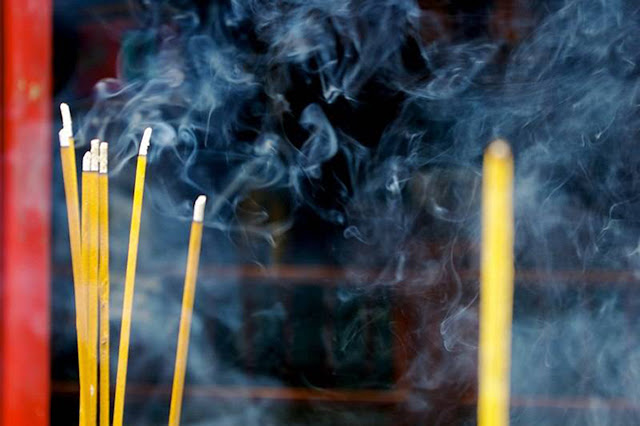Incense in China 香在中國
Where we come and where we go,this is the question that always permeated with chinese as well as world people.In modern days china,the materialization of society is rather loading with heavy weight,thus we all the chinese people should rely back on our traditional culture to seek some inner power to fulfill our heart leading us with hope and light.Religion,naturally,is the place to rest the body plus the soul. Before the holly statue burning one stick of incense one sinks himself into the quite place from the blisterious crowd,even a moment.Postscript:
Incense in China
is traditionally used in a wide range of Chinese cultural activities including, religious ceremonies, ancestor veneration, traditional medicine, and in daily life. Known as xiang (Chinese: 香; pinyin: xiāng; Wade–Giles: hsiang; literally "fragrance"), incense was used by the Chinese cultures starting from Neolithic times with it coming to greater prominence starting from the Xia, Shang, and Zhou dynasties.One study shows that during the Han Dynasty (206 BC – AD 220 )there was increased trade and acquisitions of more fragrant foreign incense materials when local incense materials were considered "poor man's incense".
 |
| Incense in China |
Besides meaning "incense", the Chinese word xiang (香) also means "fragrance; scent; aroma; perfume; spice". The sinologist and historian Edward H. Schafer said that in medieval China:
“ there was little clear-cut distinction among drugs, spices, perfumes, and
incenses
– that is, among substances which nourish the body and those which nourish the spirit, those which attract a lover and those which attract a divinity. ”—The Golden Peaches of Samarkand, a Study of T'ang Exotics, Edward H. Schafer
Contents

No comments :
Post a Comment